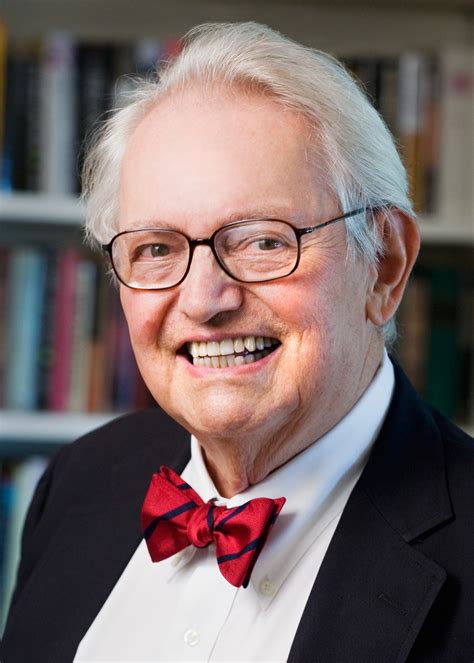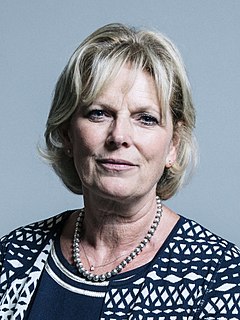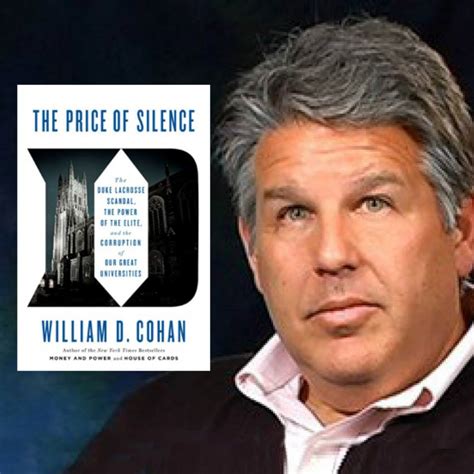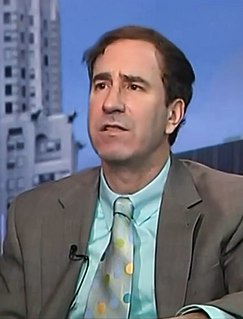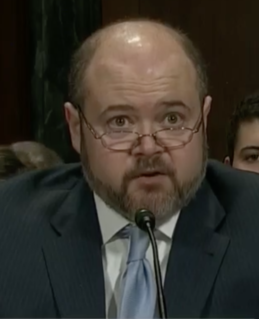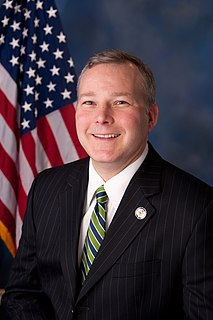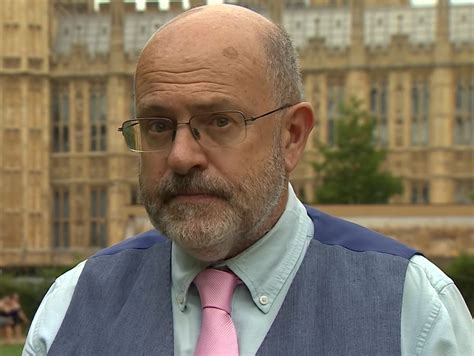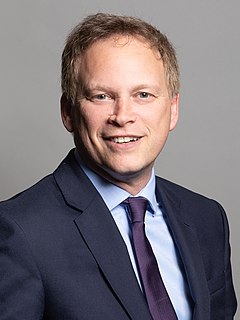Top 109 Pensions Quotes & Sayings - Page 2
Explore popular Pensions quotes.
Last updated on November 23, 2024.
Unfortunately, my rivals are spreading all kinds of suspicions for political reasons that are absolutely not true. They've tried accusing me of agreeing to dismantle the army, of jeopardizing private property, of giving the pensions of policemen to the guerillas - all kinds of lies. What they want is for people to be afraid of peace.
Trump gives progressives a way to channel whatever guilt they might have - whether from preventing homebuilding, benefitting from unfair taxes and pensions, or depriving black and Latino students the teacher quality and school funding they need - into a sanctimonious tribal rage against Republican racism.
Government workers think the job of everyone else in the economy is to protect their high salaries, crazy work rules and obscene pensions. They self-righteously lecture us about public service, the children, a 'living wage' all in the service of squeezing more money from the taxpayer to fund their breathtakingly selfish job arrangements.
I would like to invite the citizens of Great Britain and the citizens of the U.S. and the citizens of the world to come here and walk freely through the streets of Venezuela, to talk to anyone they want, to watch television, to read the papers. We are building a true democracy, with human rights for everyone, social rights, education, health care, pensions, social security, and jobs.
The labor movement was the principal force that transformed misery and despair into hope and progress. Out of its bold struggles, economic and social reform gave birth to unemployment insurance, old age pensions, government relief for the destitute, and, above all, new wage levels that meant not mere survival but a tolerable life.
Ms. Merkel is avoiding retirement issues. She simply doesn't want to do anything, although she knows that doing nothing means that real pensions will fall. That is preprogrammed old-age poverty. When it comes to wage fairness: It was Ms. Merkel herself who blocked the establishment of a right to return to a fulltime job after going part time for a period. Yet everyone keeps saying that our platform is identical to that of the conservatives. It's crazy.
The greatest danger to an adequate old-age security plan is rising prices. A rise of 2% a year in prices would cut the purchasing power of pensions about 45% in 30 years. The greatest danger of rising prices is from wages rising faster than output per man-hour.... Whether the nation succeeds in providing adequate security for retired workers depends in large measure upon the wage policies of trade unions.
In Holland, pensions were cut. The public health services for elderly people were cut. Enormous asocial tough measures. And at the same time people saw while the government has these enormous austerity measures, that the government spent billions of euros on asylum seekers who really weren't asylum seekers but migrants looking for a better life.
When you pay social security taxes, you are in no way making provision for your own retirement. You are paying the pensions of those who are already retired. Once you understand this, you see that whether you will get the benefits you are counting on when you retire depends on whether Congress will levy enough taxes, borrow enough, or print enough money.
The only reason there is a crisis about Social Security in the US and pensions in Europe and Japan is that you cannot maintain a "Ponzi" scheme indefinitely. We have collected from today's young to pay today's old and counted on tomorrow's young to keep doing so. That was a fine scheme as long as the number of young people was rising faster than old people. When that ratio comes to an end, such a system also has to end.
Government has coddled, accepted, and ignored white collar crime for too long. It is time the nation woke up and realized that it's not the armed robbers or drug dealers who cause the most economic harm, it's the white collar criminals living in the most expensive homes who have the most impressive resumes who harm us the most. They steal our pensions, bankrupt our companies, and destroy thousands of jobs, ruining countless lives.
We in Germany could, for example, lower taxes. And who is against that? The Social Democrats.
We could also mobilize more private investments for public infrastructure projects liken the construction of highways. But the Social Democrats also reject this, even though they are at times similar to others abroad in their carping about the surplus. Incidentally, some of the consequences of the good economic situation are strong increases in wages, rising pensions and a strong labor market.
And most of all, it means continually drawing connections among these seemingly disparate struggles—asserting, for instance, that the logic that would cut pensions, food stamps, and health care before increasing taxes on the rich is the same logic that would blast the bedrock of the earth to get the last vapors of gas and the last drops of oil before making the shift to renewable energy.
Throughout the universe of public and private funds, managers are measured quarterly against one index or another, defined by statistics, and corralled into this category or that category so that fund of funds, pensions, and other institutions can make comforting - if not necessarily prudent - asset allocation decisions.
I try not to make political arguments personal. It doesn't help and it switches a lot of people off. The real questions: Will we have peace? Will we have justice? Will we have pensions? Will we have free education? Will we have public services? .... those are the sort of things which interest me. I don't think that having a go at individuals really helps get your point across apart from anything else.
The backwoodsmen are muttering about making Britain's draconian union laws - already among the toughest in Europe - harsher still. And parts of the media will continue to attack public service pensions, as if school meals staff, refuse collectors and healthcare workers have no right to a decent retirement.
They said it was impossible to touch the third rail of politics, to take on public-sector unions and to reform a pension and health benefits system that was headed to bankruptcy. But with bipartisan leadership, we saved taxpayers $132 billion dollars over 30 years and saved retirees their pensions. We did it.
If you can't trust your boss - or your pension company - to take care of your investment, who can you trust? The vast majority of company chiefs take their responsibilities seriously and protect their workers' final salary pensions. But for too long, the reckless few playing fast and loose with people's futures have got away scot-free.
Toronto is a world-class city. You don't have a debate here about immigration because you need it to just maintain your pensions: that's dependent on people coming in to fund that. And again, I don't want to be controversial, but I think the average education level in Canada is probably higher than in the United States.
This is about right vs. wrong - and focusing on our values of faith, family and hard work so we can help Kentucky families who are falling behind. While Matt Bevin cares about the special interests, we're fighting to improve public education, expand access to health care, protect pensions, and create more good-paying jobs.
In short, the early receivers of the new money in this market chain of events gain at the expense of those who receive the money toward the end of the chain, and still worse losers are the people (e.g., those on fixed incomes such as annuities, interest, or pensions) who never receive the new money.
This is something that Randi Weingarten said to me when I interviewed her once, which I think I quote in chapter nine. She talks about how only 7 percent of private sector workers in the American economy are in unions. So all the protections that teachers have that are due to collective bargaining - including generous pensions, generous health plans, limits to what they can be asked to do after school and in the summers - all of those things are sources of resentment to the public. And I think that politicians have played off of that quite effectively.
As it has over the decades, the union movement stands for the fundamental moral values that make America strong: quality education for our children, affordable health care for every person-not just some-an end to poverty, secure pensions and wages that enable families to sustain the middle-class life that has fueled this nation's prosperity and strength. Union members and other working family activists don't just vote our moral values-we live them. We fight for them, day in, day out. Our commitment to economic and social justice propels us and everything we do.
Germany has great skill levels, great infrastructure, high-quality plant. If you go to the U.K., we're very creative, and we've got the language, but energy costs are pretty much the most expensive in the Western world; pensions are pretty expensive, and the skills are significantly below those in Germany and the U.S.
Because of outdated regulations, workers in different types of contract often have unequal access to healthcare, pensions, education, and training, as well as other social benefits. This has to change for countries to remain competitive and for our businesses and workers to survive in the digital age.
Governments need to lay out a credible path to reducing their deficits in the medium term, but without excessively enfeebling an already weak recovery. That means raising retirement ages and overhauling pensions; putting in place the budget rules and institutions that will curb future profligacy; and favouring spending cuts over tax increases.
If you look at things that really affect people's lives - sport, the arts, charities - they were always at the back of the queue for government money - health, social security, defence, pensions were all way ahead. And each of those areas - sports, the arts, the lottery - got relatively petty cash from the government.
Faced with such insecurity, labor unions seek a solution in demands for higher wages, shorter hours, pensions, and such things. But this approach takes monopolistic capitalism for granted, and accepts the unnatural division between property and responsibility as permanent. A much more radical solution is apt to come, and this may take either of two forms.
Progressive visions pale and are smashed next to the normalization of market-driven government policies that wipe out pensions, eliminate quality health care, punish unions, demonize public servants, raise college tuition, and produce a harsh world of joblessness - all the while giving billions and huge bonuses, instead of prison sentences... to those bankers and investment brokers who were responsible for the 2008 meltdown of the economy and the loss of homes for millions of Americans.










